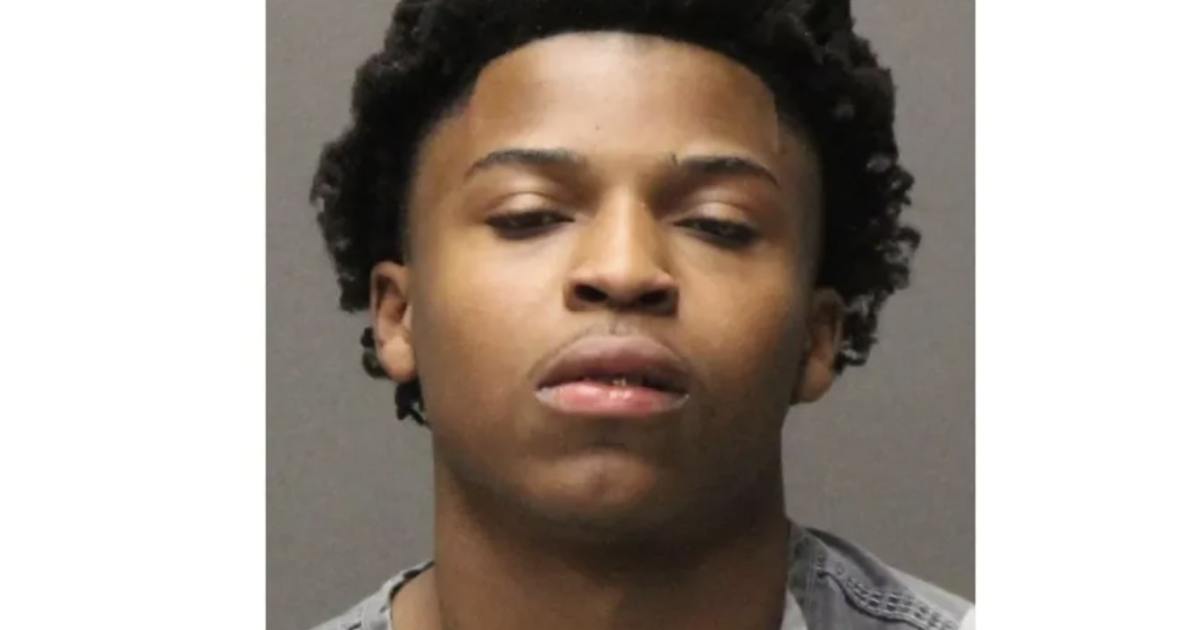A Maryland teenager has been sentenced to 80 years in prison for fatally shooting a former classmate inside a high school bathroom, capping a case that rattled a community and underscored ongoing concerns about gun violence on campus. Seventeen-year-old Jaylen Prince received the sentence on October 14, according to the Harford County State’s Attorney’s Office.
The court imposed an additional 20 years with all but 80 years suspended, effectively setting his term at eight decades. Because Prince was a juvenile at the time of the crime, Maryland law does not permit life without parole. He will be eligible for parole only after serving at least half of his sentence, per the State’s Attorney’s Office.
Prince, who is now 17 but was 16 when the shooting happened, was found guilty in May of first-degree murder and related charges in the death of his former classmate, Warren Grant. The killing occurred in September 2024 at Joppatowne High School.
Background And Verdict
The fatal shooting took place inside a school bathroom during the regular school day, an incident that prompted lockdowns, extensive investigation, and a wave of grief and anger throughout Harford County. Authorities quickly identified Prince as a suspect, and the case proceeded through the courts in the months that followed.
In May, a jury found Prince guilty of first-degree murder and several related crimes tied to the incident. The verdict followed a trial that centered on how the shooting unfolded and why Prince brought a firearm onto school grounds in the first place.
Prosecutors argued that Prince arrived at Joppatowne High School with a loaded, unserialized firearm — commonly referred to as a ghost gun — with the intent to kill Grant, according to WBAL-TV. They presented the shooting as deliberate and planned.
The defense countered that the shooting was not intentional. Prince testified that the gun went off during a heated argument about a girl, maintaining the shooting was accidental, CBS News reported.
Inside The Trial: Evidence And Testimony
Prosecutors introduced video evidence they said showed Prince threatening to kill Grant multiple times before the shooting. According to their account, captured on tape, Prince threatened Grant four times, reinforcing their claim that the killing was premeditated rather than an impulsive act.
Witnesses also told investigators they saw Prince pull the gun from his backpack and shoot Grant in the bathroom, bolstering the prosecution’s case. Afterward, Prince fled the scene, and the firearm used in the shooting was never recovered, CBS News reported.
The ghost gun detail added a troubling dimension to the case. Such firearms are typically assembled from kits or parts and lack serial numbers, making them difficult to trace. Prosecutors emphasized this point in arguing that Prince took steps that made both detection and accountability harder.
While Prince insisted the shooting was an accident, the jury ultimately sided with the prosecution’s narrative, delivering a first-degree murder conviction that set the stage for a lengthy prison term.
Sentencing, Parole, And Officials’ Statements
Before sentencing, the court considered Prince’s disciplinary record and risk assessments. School records from Harford County Public Schools cited in the State’s Attorney’s press release detailed dozens of incidents, including threats toward teachers, multiple physical attacks on peers, and persistent abusive behavior.
A psychologist’s evaluation concluded that Prince posed an “extremely high risk for future violence,” a finding that factored into the court’s decision and the severity of the sentence. Those assessments were presented as evidence that community safety required a significant term of incarceration.
“No sentence will ever bring Warren back to his loved ones or make up for the fact that his life was cut short in the most tragic and senseless way,” State’s Attorney Alison M. Healey said in a statement. “It is my hope that today will help close the hardest chapter of Warren family’s lives and send the message that gun violence will not be tolerated in our schools, or in our community at all for that matter.”
Judge Keven Mahoney addressed the case’s broader implications during sentencing, saying the effects of the murder would be “profound and long lasting.” He stressed that students must be able to feel safe in school and that gun violence “should not be an acceptable reality.”
Because of Prince’s age, the court could not impose life without parole under state law. However, parole eligibility after half the sentence means Prince will still face decades in prison before any potential review. The sentence also includes a suspended portion that does not reduce the effective 80-year term but reflects the court’s adherence to juvenile sentencing statutes.
The case has renewed discussion about school safety and the availability of ghost guns, even as officials urged against drawing broad conclusions from one horrific incident. For Harford County, the sentence marks a legal conclusion to a devastating event, though the emotional and community impact will persist far longer.
As the legal system moves forward, the messages from the bench and the State’s Attorney were unequivocal: accountability for campus violence will be strict, and the expectation remains that schools must be places of safety and learning — not fear.















































































































